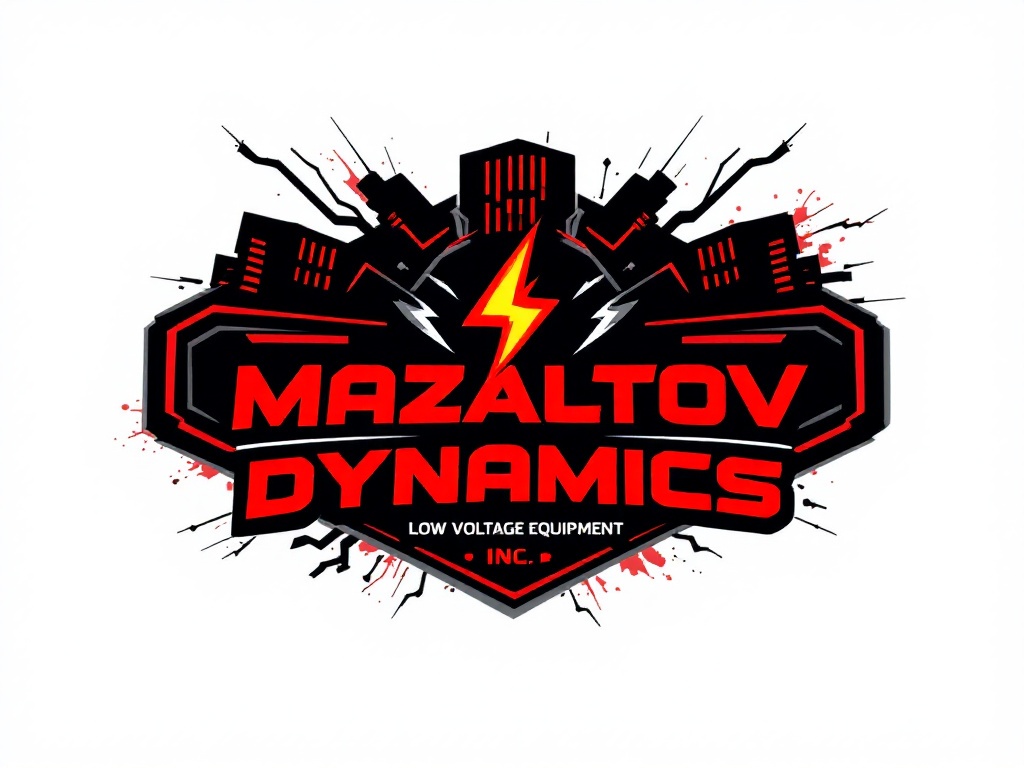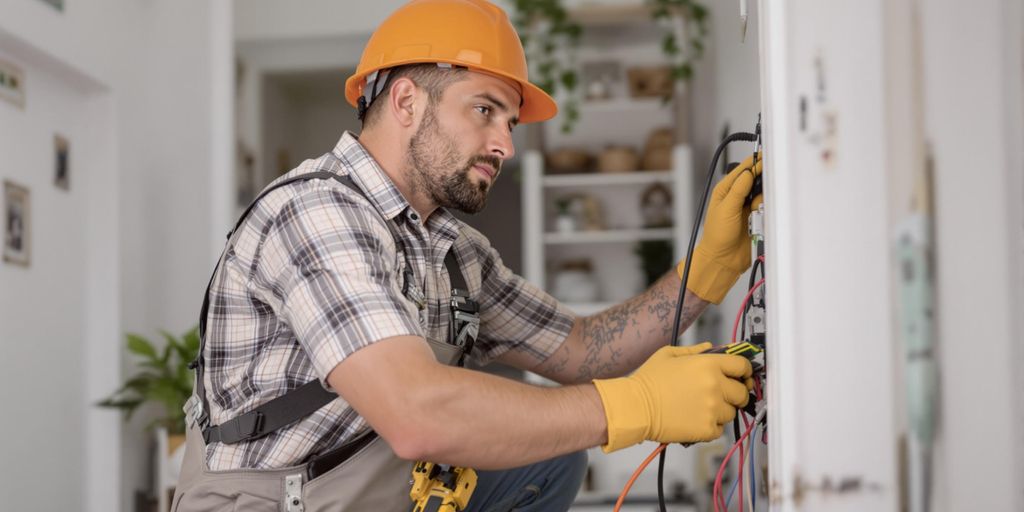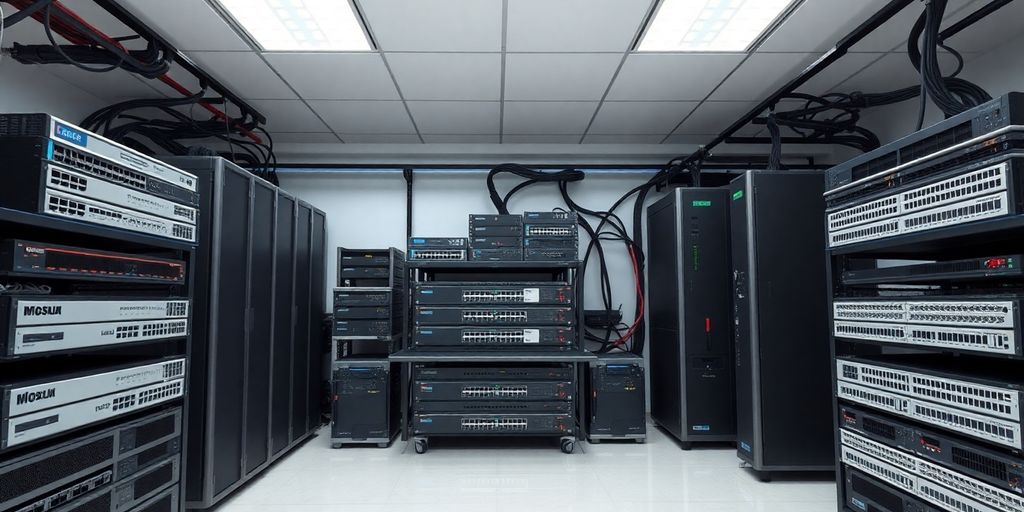Ever wondered why electrical inspections are such a big deal? It’s not just about keeping the lights on. These inspections are all about making sure everything’s running smoothly and safely in your home or workplace. From catching potential fire hazards to making sure your place meets all the rules, electrical inspections are a must. Plus, they can even help you save on your energy bills. Let’s dive into what makes these inspections so important and what you can expect when it’s time to get one done.
Key Takeaways
- Electrical inspections are crucial for identifying potential hazards like faulty wiring and overloaded circuits.
- Regular checks ensure compliance with local and national electrical codes, avoiding fines and legal issues.
- Inspections can reveal opportunities for energy efficiency, leading to cost savings on utility bills.
- Common problems found during inspections include outdated wiring and faulty electrical panels.
- Scheduling inspections after major renovations or before selling a property can prevent future issues.
Importance Of Electrical Inspections & Services

Preventing Electrical Hazards
Electrical inspections are a proactive measure to catch potential hazards before they turn into serious problems. Picture this: faulty wiring, outdated panels, or overloaded circuits lurking in your home or office. These issues can lead to fires, equipment failures, or even electric shocks. Regular inspections help in spotting these risks early, ensuring everyone’s safety. It’s about catching the problem before it catches you.
Ensuring Compliance With Codes
Every building has to meet specific electrical codes and standards. These regulations are not just there to make life difficult; they’re crucial for safety. Regular inspections make sure that your electrical systems are up to par with local, state, and national codes. Falling short of these standards can mean hefty fines or legal troubles. Plus, compliance reduces the risk of accidents, keeping you and your property safe.
Enhancing Energy Efficiency
Inspections aren’t just about safety and compliance; they can also help you save money. By identifying areas where energy is wasted, you can make changes that lead to significant cost savings. Maybe it’s switching to LED lighting or optimizing your electrical loads. An inspection can uncover these opportunities, helping you cut down on your energy bills.
Components Evaluated During Electrical Inspections & Services
When it comes to electrical inspections, a few key components are always on the checklist. These elements are crucial for making sure everything’s running safely and up to code.
Electrical Panels
First up, the electrical panels. Inspectors take a close look at both the main panel and any subpanels. They’re checking to make sure everything is installed correctly, grounded properly, and sized right. If there are any faulty breakers or damaged parts, they’ll catch those too. A well-maintained panel is a cornerstone of a safe electrical system.
Wiring Conditions
Next, they dig into the wiring. This isn’t just about making sure the wires aren’t frayed or damaged. Inspectors also ensure the right type of wiring is used and that it’s installed securely. Exposed or outdated wiring can be a big hazard, so they’re on the lookout for that.
Outlets And Switches
Finally, outlets and switches get their turn under the spotlight. Inspectors check each one to ensure they’re working properly and are securely installed. Ground Fault Circuit Interrupters (GFCIs) are a big deal in places like kitchens and bathrooms, so they make sure those are in place where needed.
Regular checks on these components help identify potential issues before they become major problems, saving you from costly repairs and keeping your home safe.
What To Expect From Electrical Inspections & Services
Electrical inspections might seem like a hassle, but they’re super important for keeping everything running smoothly and safely. Here’s what usually goes down during one of these inspections.
Visual Examination
First up, the electrician will do a thorough look-over of the entire electrical setup. They’ll check out the essential components of your system, like panels, circuit breakers, and wiring. What they’re really looking for is any obvious wear and tear, corrosion, or anything else that just doesn’t look right. Spotting these issues early can prevent bigger problems down the line.
Testing And Diagnostics
After the visual check, it’s time for some hands-on testing. This is where the electrician will test grounding, make sure circuit breakers are doing their job, and measure electrical loads. These tests help ensure everything is functioning as it should be, without any hitches.
Detailed Reporting
Once all the examining and testing is done, you’ll get a detailed report. This isn’t just a bunch of technical jargon; it’s a breakdown of what’s working, what’s not, and what needs fixing. The report will also give you a heads-up on any potential issues that could crop up in the future. This way, you’re not caught off guard by unexpected breakdowns or safety hazards.
Regular electrical inspections are like health check-ups for your home – they catch little issues before they turn into big headaches. So, even if everything seems fine, it’s worth getting things checked out regularly to keep your home safe and sound.
Common Issues Identified In Electrical Inspections & Services

Electrical inspections are a critical part of maintaining a safe and efficient home or business. They help uncover problems that might not be obvious at first glance but could lead to serious issues if left unaddressed.
Outdated Wiring
One major issue often found is outdated wiring. Homes built decades ago might still have old wiring systems that aren’t designed to handle today’s electrical loads. This can lead to overheating and even fires. Upgrading your wiring is crucial to ensure safety and efficiency.
Overloaded Circuits
Another common problem is overloaded circuits. This happens when too many devices draw power from a single circuit, which can cause breakers to trip or, worse, start a fire. Inspectors often find that redistributing the electrical load or upgrading the circuit can solve this issue.
Faulty Electrical Panels
Electrical panels are the control centers of your electrical system. If these panels are outdated or faulty, they can cause power outages or increase the risk of fire. Regular checks ensure that these panels are up to current safety standards.
Regular inspections can reveal issues like common electrical mistakes such as ungrounded receptacles and double-tapped circuit breakers, which are often overlooked but crucial for safety.
In summary, addressing these common issues during inspections not only improves safety but also helps maintain the value of your property. Regular check-ups can save you from costly repairs and ensure your electrical system is running smoothly.
Types Of Electrical Inspections & Services Available
Residential Inspections
Residential electrical inspections are all about keeping your home safe and sound. These inspections are crucial for identifying potential hazards like faulty wiring, overloaded circuits, or outdated panels that could lead to bigger problems if left unchecked. Typically, a professional inspector will evaluate various components including wiring, outlets, and the main electrical panel. This proactive approach helps prevent electrical fires and other dangerous situations, ultimately protecting the home and its occupants.
Commercial Inspections
Commercial properties have different needs compared to homes. Inspections here focus on ensuring that the electrical systems can handle the demands of a business environment. Inspectors check that everything complies with local codes and standards, reducing the risk of costly fines or safety issues. They might look at things like the capacity of electrical panels, the condition of wiring, and whether the system is capable of supporting the business’s equipment and technology.
Safety Inspections
Safety inspections are a must for both homes and businesses. These inspections are about more than just compliance; they’re about ensuring peace of mind. Inspectors will thoroughly examine everything from the electrical panels to the smallest details like outlets and switches. They use specialized equipment to test circuits, measure voltages, and ensure everything is grounded properly. The goal is to identify and fix potential hazards before they become serious problems.
"Regular electrical inspections are crucial for home safety. A professional inspector evaluates wiring, outlets, circuit breakers, and other components to identify potential hazards, ensuring the electrical system operates safely and efficiently. This proactive approach helps prevent electrical fires and other dangerous situations, ultimately protecting the home and its occupants."
By understanding the different types of electrical inspections available, property owners can make informed decisions about maintaining their electrical systems. Whether it’s for a home, a business, or just for peace of mind, these inspections play a vital role in ensuring safety and functionality.
Benefits Of Regular Electrical Inspections & Services
Enhanced Safety
Regular electrical inspections are crucial for maintaining a safe environment. These inspections catch potential hazards like faulty wiring or overloaded circuits before they escalate into something more dangerous, like electrical fires or shocks. By addressing these issues early, you can avoid accidents and ensure the safety of everyone in the building.
- Identify and fix faulty wiring
- Prevent overloaded circuits
- Reduce risk of electrical fires
Regular inspections by a professional electrician enhance safety by identifying and resolving potential hazards, ensuring your peace of mind.
Cost-Effective Solutions
Catching problems early during an inspection can save you a lot of money in the long run. Repairs are often cheaper when issues are detected early, and you can avoid the high costs associated with major repairs or replacements. Regular checks can also help maintain the longevity of your electrical systems, making sure everything runs smoothly without unexpected breakdowns.
- Avoid costly major repairs
- Extend the lifespan of electrical components
- Keep systems running efficiently
Property Value Protection
For property owners, regular electrical inspections can significantly boost property value. A well-maintained electrical system is a big plus for potential buyers or tenants, as it shows that the property is safe and up to code. This can make your property more attractive on the market and potentially increase its selling price.
- Enhance buyer confidence
- Ensure compliance with current electrical codes
- Increase property marketability
Regular inspections not only ensure safety and efficiency but also protect your property’s value, making it a smart investment for any homeowner.
By scheduling regular electrical inspections, you ensure that your electrical systems are safe, efficient, and compliant, ultimately enhancing the value and safety of your property.
When To Schedule Electrical Inspections & Services
Regular electrical inspections can be the unsung hero of home maintenance. Knowing when to get these inspections can save you from headaches and unexpected costs down the line. Here’s when you should definitely consider scheduling one.
After Major Renovations
Whenever you’ve done big changes to your home, like adding new rooms or upgrading major systems, it’s time for an electrical inspection. Renovations can alter the load on your electrical system, and you want to make sure everything is up to code and functioning safely. Plus, new regulations might require permits for all new single-family detached houses, semi-detached houses, duplexes, and townhouses, in accordance with state law. Better safe than sorry!
Before Selling A Property
If you’re putting your house on the market, an electrical inspection can be a great selling point. It shows potential buyers that the home is safe and up-to-date, which can boost their confidence in making an offer. No one wants to buy a house only to find out it needs major electrical work.
Following Natural Disasters
After events like floods or storms, your home’s electrical system might have taken a hit. Water and electricity don’t mix well, and even if everything seems fine, there could be hidden damage. An inspection can catch issues before they become serious problems, ensuring your home remains a safe haven.
Ignoring the need for electrical inspections can lead to costly repairs or even dangerous situations. It’s a small investment for peace of mind and safety.
Wrapping It Up
Alright, so here’s the deal with electrical inspections: they’re not just a "nice-to-have"—they’re a must. Whether you’re a homeowner or running a business, keeping up with these checks is like giving your property a health check-up. You catch problems before they turn into disasters, like fires or costly repairs. Plus, staying on top of inspections means you’re playing by the rules, avoiding fines, and maybe even saving some cash on energy bills. So, next time you’re thinking about skipping that inspection, remember it’s all about keeping things safe and sound. Trust me, it’s worth it.
Frequently Asked Questions
Why should I get regular electrical inspections?
Regular inspections help find problems before they become big issues. They can stop fires and other dangers by checking things like old wiring and faulty panels.
How do electrical inspections help with energy efficiency?
Inspections can show where energy is wasted. Fixing these issues can save money by reducing energy bills.
What happens during an electrical inspection?
The inspector looks at the electrical system closely. They check for wear and tear, test circuits, and make sure everything is safe and working right.
What are some common problems found in electrical inspections?
Inspectors often find old wiring, overloaded circuits, and broken panels. These issues can lead to bigger problems if not fixed.
When should I schedule an electrical inspection?
You should get an inspection after big renovations, before selling your house, or after storms or other disasters.
What types of electrical inspections are there?
There are inspections for homes, businesses, and safety checks to make sure everything meets the rules and is safe.



